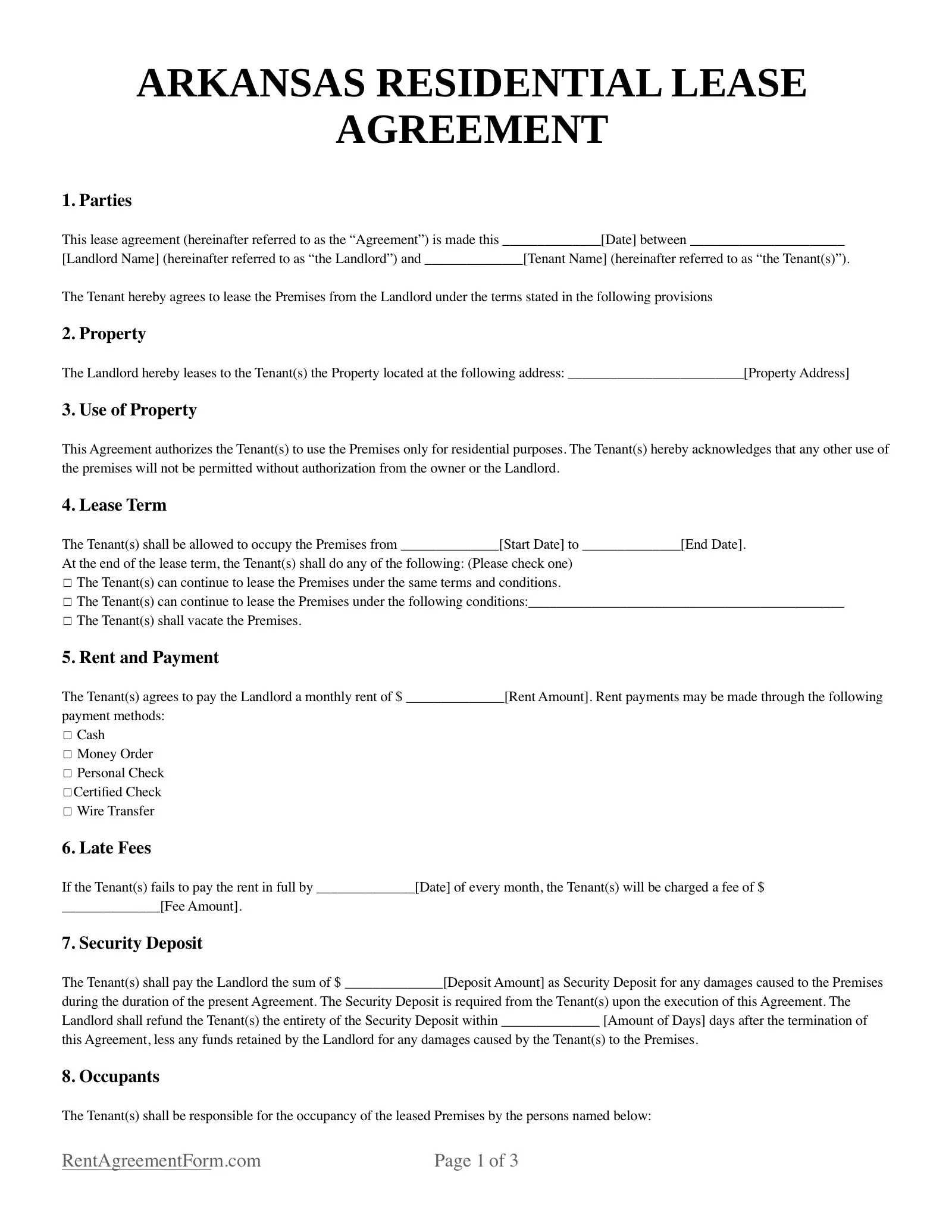Arkansas Residential Lease Agreement Form
A residential lease agreement form is a legal document that outlines the terms and conditions of a tenant’s stay in a property or unit. It contains the rights and obligations of a landlord and tenant concerning the use of the property.
Leasing a property starts with a rental application. When prospective tenants are looking at a real estate or apartment unit for rent, they need to submit a rental application form to signify their interest in the property. It is usually a fillable form where the prospect writes down their personal information, including work background and rental history. Submission of the simple form grants the landlord permission to do a credit check on the tenant.
If the landlord approves the rental application, both parties can then proceed with the residential lease agreement form. The document should enumerate the rent amount, monthly due date, and other important responsibilities regarding the upkeep and care of the property. The landlord is obliged to make the structure, fixtures, and mechanical components of the property livable, while the tenant must not cause undue damage to any room or area.

Required Disclosures
Unlike other states, there is only one mandatory disclosure in Arkansas:
Lead-Based Paint Disclosure Rule This disclosure is based on the federal law that landlords with homes built before 1978 must inform the tenant of the dangers of lead-based paint. (Lead-Based Paint Hazard Reduction Act of 1992 § 1018).
Rent Grace Period
Arkansas statutes dictate that a tenant has five days from the due date to pay rent before the landlord can make an early termination of the rental agreement. (AR Code § 18-17-701 (b)).
Rent is usually due every first of the month, which means the tenant has until the sixth of the month to pay rent. However, there is no statute on late fees, unless it was previously stated in the Arkansas residential lease agreement form.
Security Deposits
A security deposit is a sum of money that a landlord may require from the tenant at the start of their tenancy. It is refundable at the end of the tenancy but only if there is no damage to the property or unpaid rent.
The maximum security deposit a landlord can collect in Arkansas is two months’ worth of rent (AR Code § 18-16-304). For example, this means that if the monthly rent is $600, the security deposit cannot be more than $1,200. At the end of the tenancy or when both parties agree to break the residential agreement, the landlord has 60 days to return the security deposit to the tenant.
The landlord can do a walkthrough of the property to inspect for damage. If repairs are required, the cost can be deducted from the security deposit. Any balance from the security deposit must be returned within two months. If there are any deductions, the landlord must provide the tenant with an itemized list of repairs and how much they cost.
If necessary, the landlord can withhold the entire security deposit due to unpaid rent and/or the substantial cost of repairs.